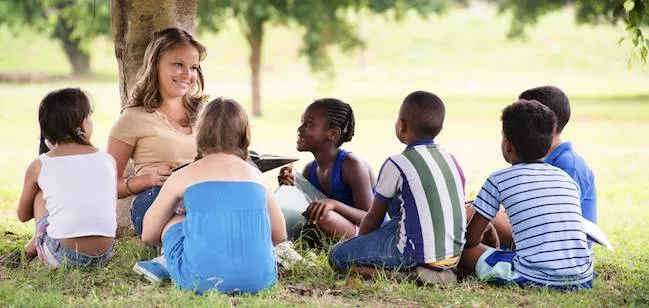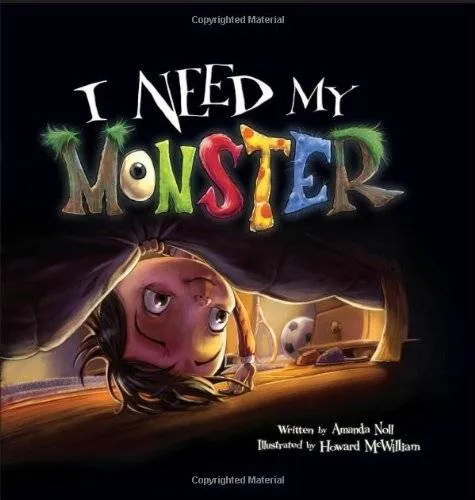
The Power of Reading Out Loud
This content contains affiliate links. When you buy through these links, we may earn an affiliate commission.
It’s September. For most people, this means carefully piling high the list for Fall Reading, looking with eager glee at the anticipated sequels, wondering what time of day would be best for enjoying a quiet read out amongst the red-gold leaves.
For me, it’s also the beginning of Read Aloud season.
There is power in the Read Aloud. There’s something about hearing someone’s voice — whether it’s your own or not — shape the words of a book, bring the story into being with sounds that crackle, slide, dip, or sometimes even pop. Why else would many people, young and old alike, love so fiercely the story that is sung to them, more than the one they take in with their eyes? Why do so many of us choose and fiercely defend our right to hear a story? Maybe it awakens in us some ancient, deep memory, when the written word was hardly a dream, and tales were told by firesides in houses gilded by twilight, person to person.
And that, perhaps, is the most powerful thing about the read aloud. It’s shared. It’s an experience that connects storybook reader, teller of tales, with an audience of all kinds. For a brief spell, no matter where we have come from, we have all set foot inside the same world. We all have a common ground on which we can listen and understand.
At least, these are some of the romantic thoughts I have as I go searching for Read Aloud books for the first few weeks of school. It’s funny and fascinating, how this timeless tradition has changed over the millennia. How, if we were to go looking for telling tales in its truest form, we would find it in places like an elementary school classroom. Secretly, I love that one of the many hats I get to wear as a teacher, along with Mathematician, Debate Moderator, Skilled Lunch Item Opener, and Expert Organizer (still working on that one), is Dramatic Reader. And I love it even more when I feel that thrill as I look out on a sea of wide-eyed, mouth-open little ones — some of whom are surreptitiously scooting up, some of whom have to be told for the fifth time by their now-getting-cross neighbor to please sit on their bottoms so everyone can see the pictures.
 It’s here that I’m reminded most that a good Read Aloud can inspire people to talk, to wonder, to share. Books like I NEED My Monster, by Amanda Noll & Howard McWilliam. Before inspiring my kids to imagine what their own monster under the bed would look like, sound like, or feel like, this book sparked a discussion on how maybe it was okay for a boy monster named Ralph to wear nail polish on his claws if he wants to, and how maybe it was not okay for our young male protagonist to turn a girl monster away just because she was a girl.
Or, books like Mary Hoffman & Caroline Binch’s Amazing Grace, which I used this year to talk to the kids about their hopes and dreams for second grade. Sure, I could just as easily ask them what their goals for second grade are, and I know I would get all sorts of answers. But when we first step into Grace’s world for a minute, a world in which Grace wants nothing more than to be Peter Pan in the school play, even though one character makes a point of telling her Peter Pan is a boy, and another character makes a point of telling her Peter Pan isn’t black, we suddenly have a new, maybe different understanding of what a hope and a dream is.
Next, I plan on reading Drew Daywalt & Oliver Jeffer’s The Day the Crayons Quit, among others. I’m not exactly sure where we’ll land when we read this story about crayons who just want their user to respect them — but I do know we’ll land there together.
Is there a book you love to read aloud?
It’s here that I’m reminded most that a good Read Aloud can inspire people to talk, to wonder, to share. Books like I NEED My Monster, by Amanda Noll & Howard McWilliam. Before inspiring my kids to imagine what their own monster under the bed would look like, sound like, or feel like, this book sparked a discussion on how maybe it was okay for a boy monster named Ralph to wear nail polish on his claws if he wants to, and how maybe it was not okay for our young male protagonist to turn a girl monster away just because she was a girl.
Or, books like Mary Hoffman & Caroline Binch’s Amazing Grace, which I used this year to talk to the kids about their hopes and dreams for second grade. Sure, I could just as easily ask them what their goals for second grade are, and I know I would get all sorts of answers. But when we first step into Grace’s world for a minute, a world in which Grace wants nothing more than to be Peter Pan in the school play, even though one character makes a point of telling her Peter Pan is a boy, and another character makes a point of telling her Peter Pan isn’t black, we suddenly have a new, maybe different understanding of what a hope and a dream is.
Next, I plan on reading Drew Daywalt & Oliver Jeffer’s The Day the Crayons Quit, among others. I’m not exactly sure where we’ll land when we read this story about crayons who just want their user to respect them — but I do know we’ll land there together.
Is there a book you love to read aloud?
 It’s here that I’m reminded most that a good Read Aloud can inspire people to talk, to wonder, to share. Books like I NEED My Monster, by Amanda Noll & Howard McWilliam. Before inspiring my kids to imagine what their own monster under the bed would look like, sound like, or feel like, this book sparked a discussion on how maybe it was okay for a boy monster named Ralph to wear nail polish on his claws if he wants to, and how maybe it was not okay for our young male protagonist to turn a girl monster away just because she was a girl.
Or, books like Mary Hoffman & Caroline Binch’s Amazing Grace, which I used this year to talk to the kids about their hopes and dreams for second grade. Sure, I could just as easily ask them what their goals for second grade are, and I know I would get all sorts of answers. But when we first step into Grace’s world for a minute, a world in which Grace wants nothing more than to be Peter Pan in the school play, even though one character makes a point of telling her Peter Pan is a boy, and another character makes a point of telling her Peter Pan isn’t black, we suddenly have a new, maybe different understanding of what a hope and a dream is.
Next, I plan on reading Drew Daywalt & Oliver Jeffer’s The Day the Crayons Quit, among others. I’m not exactly sure where we’ll land when we read this story about crayons who just want their user to respect them — but I do know we’ll land there together.
Is there a book you love to read aloud?
It’s here that I’m reminded most that a good Read Aloud can inspire people to talk, to wonder, to share. Books like I NEED My Monster, by Amanda Noll & Howard McWilliam. Before inspiring my kids to imagine what their own monster under the bed would look like, sound like, or feel like, this book sparked a discussion on how maybe it was okay for a boy monster named Ralph to wear nail polish on his claws if he wants to, and how maybe it was not okay for our young male protagonist to turn a girl monster away just because she was a girl.
Or, books like Mary Hoffman & Caroline Binch’s Amazing Grace, which I used this year to talk to the kids about their hopes and dreams for second grade. Sure, I could just as easily ask them what their goals for second grade are, and I know I would get all sorts of answers. But when we first step into Grace’s world for a minute, a world in which Grace wants nothing more than to be Peter Pan in the school play, even though one character makes a point of telling her Peter Pan is a boy, and another character makes a point of telling her Peter Pan isn’t black, we suddenly have a new, maybe different understanding of what a hope and a dream is.
Next, I plan on reading Drew Daywalt & Oliver Jeffer’s The Day the Crayons Quit, among others. I’m not exactly sure where we’ll land when we read this story about crayons who just want their user to respect them — but I do know we’ll land there together.
Is there a book you love to read aloud?








